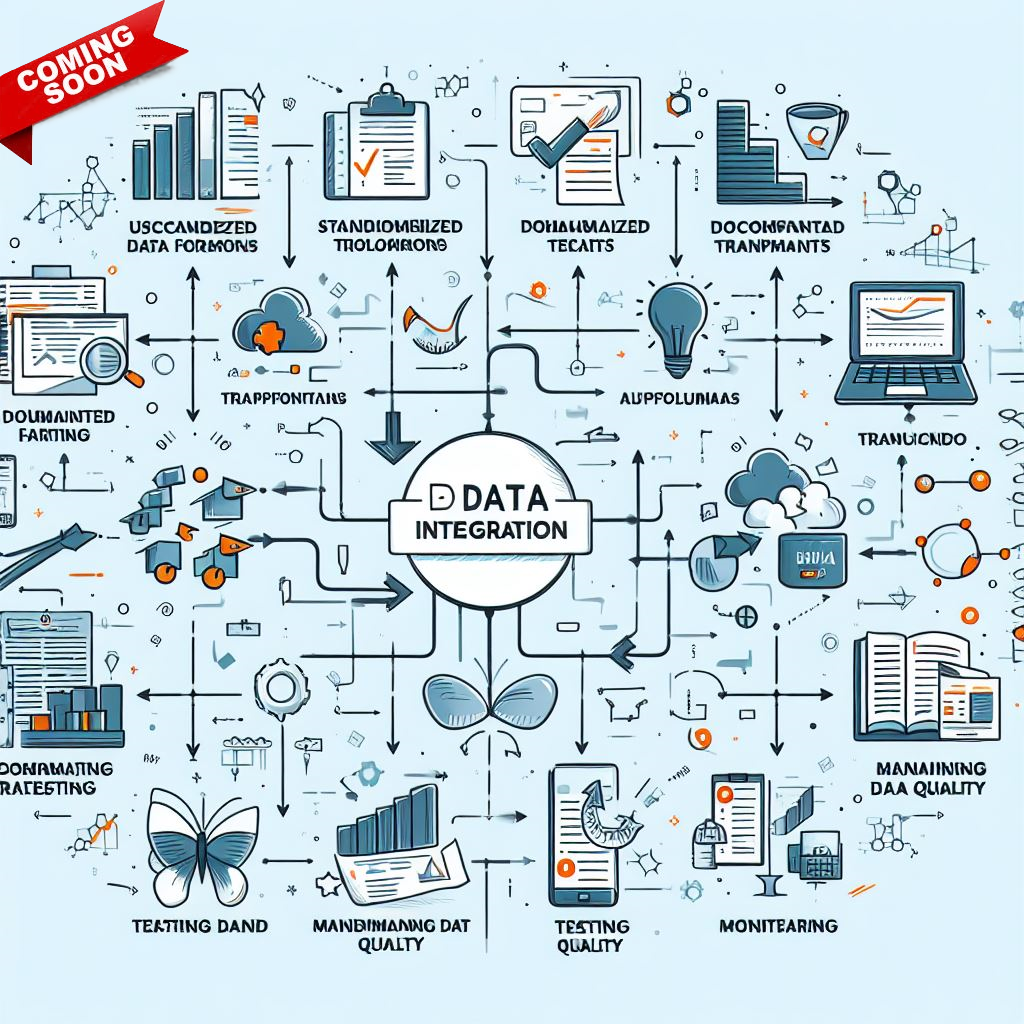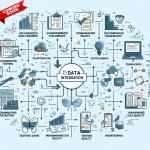Bạn đã sẵn sàng tham gia vào cộng đồng tri thức nơi bạn có thể chia sẻ kiến thức, nhận về những kiến thức từ chuyên gia và kiếm thêm thu nhập thụ động chưa?
--> Hãy lựa chọn dự án đào tạo bạn muốn tham gia và Click vào "Đăng ký tham gia"! và trở thành một phần của dự án!
Cho dù bạn muốn nâng cao kỹ năng, khám phá cơ hội mới, hoặc đơn giản là tăng thu nhập, dự án này mang đến thêm cho bạn cơ hội để đạt được mục tiêu của mình.
Vì vậy hãy tham gia vào một cộng đồng giáo dục nơi chúng ta được làm việc cùng nhau với rất nhiều chuyên gia trong các mảng, có cơ hội nâng cao giá trị bản thân và tăng trưởng tài chính.
Dưới đây là khung khóa học dự kiến, bạn hoàn toàn có thể tùy biến - đây chỉ là gợi ý cho nội dung cần triển khai, cùng trọng số cho từng cấu phần:
Module 1: Introduction to Data Integration
- Understanding the concept of data integration
- Importance and benefits of effective data integration in organizations
- Overview of common data integration challenges and complexities
- Case studies showcasing successful data integration initiatives
Module 2: Data Integration Architecture
- Fundamentals of data integration architecture
- Overview of different data integration architectures (e.g., batch processing, real-time processing, event-driven architecture)
- Considerations for selecting the appropriate architecture based on organizational needs and requirements
- Hands-on exercises to design and implement data integration architectures
Module 3: Data Integration Patterns
- Introduction to data integration patterns and design principles
- Overview of commonly used integration patterns (e.g., ETL, ELT, CDC, messaging queues)
- Detailed exploration of each integration pattern, including their advantages, limitations, and use cases
- Practical examples and case studies illustrating the implementation of data integration patterns
Module 4: Data Quality and Governance in Integration
- Importance of data quality and governance in data integration processes
- Strategies for ensuring data quality throughout the integration lifecycle
- Implementing data governance frameworks to maintain data integrity and compliance
- Tools and techniques for data quality assessment and monitoring
Module 5: Data Integration Tools and Technologies
- Overview of popular data integration tools and platforms (e.g., Apache Kafka, Informatica, Talend, MuleSoft)
- Evaluation criteria for selecting the right data integration tool for your organization
- Hands-on demonstrations and tutorials of data integration tools
- Best practices for tool implementation and integration into existing IT infrastructure
Module 6: Cloud Data Integration
- Understanding the role of cloud computing in data integration
- Overview of cloud data integration services and platforms (e.g., AWS Glue, Azure Data Factory, Google Cloud Dataflow)
- Considerations for migrating and integrating data in cloud environments
- Case studies highlighting successful cloud data integration implementations
Module 7: Big Data Integration
- Introduction to big data technologies and ecosystems
- Challenges and considerations for integrating big data into traditional data environments
- Techniques for integrating structured and unstructured data sources in big data projects
- Hands-on labs and exercises using Hadoop, Spark, and other big data frameworks
Module 8: Real-Time Data Integration
- Understanding the importance of real-time data integration in modern business environments
- Overview of real-time integration patterns and technologies (e.g., Change Data Capture, streaming platforms)
- Implementing real-time data pipelines for continuous data ingestion and processing
- Use cases and case studies demonstrating the benefits of real-time data integration
Module 9: Data Integration Best Practices
- Best practices for designing, implementing, and maintaining data integration processes
- Strategies for managing complexity and scalability in data integration projects
- Tips for optimizing performance, reliability, and security in data integration workflows
- Lessons learned from successful data integration projects and initiatives
Module 10: Future Trends in Data Integration
- Exploration of emerging trends and technologies shaping the future of data integration
- Predictions for the evolution of data integration architectures and patterns
- Considerations for staying ahead of the curve and adapting to technological advancements
- Opportunities and challenges in the era of AI, IoT, and edge computing for data integration






